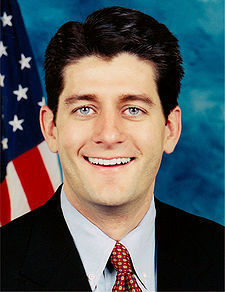Matthew Yglesias's Blog, page 2438
January 26, 2011
And You Will Know Us By The Trail of Patent Trolls

One line from last night's speech that really left me cold was this: "No country has more successful companies, or grants more patents to inventors and entrepreneurs."
For one thing, obviously you should use per capita measures here. But the bigger issue is that the quantity of patents the government hands out to inventors and entrepreneurs is measuring two different things simultaneously. One is how many new ideas do inventors and entrepreneurs send in patent applications for. The other is how loosey goosey does the patent office get about what it deems patentable. I think that if you compare today to the time when Edison and Tesla were working in the United States it's much more plausible to say that US patent policy has gotten more indiscriminate than that the gross quantity of inventiveness has accelerated.
To offer an analogy that I actually think isn't stretched at all, but 21st century standards Isaac Newton should have patented calculus ("A Method For Using Fluxions To Determine Instantaneous Rate of Change") and then waited patiently until Leibniz published his superior method and then sued the pants off anyone who tried to take a derivative without coughing up a hefty license fee. But would that world have been a better place? The issue isn't really so much the rents that Newton would have thereby extracted (I'm not going to begrudge one of human history's greatest geniuses a fortune) but the barriers to entry that would have been created as a secondary consequence. A world in which smart people have access to the stock of existing human knowledge and are free to apply it in new ways is a world of competition and innovation. A world where you need to consult with an army of lawyers first isn't. If you ask the people who care most about promoting entrepreneurship in America about this they kind of shrug, concede that the patent system is hopelessly broken, and then confess to despair that it can or will be fixed.
In a broader sense, a lot of our politics is about symbolism. And symbolically intellectual property represents itself in the contemporary United States as a kind of property—it's right there in the name. But it's better thought of as a kind of regulation. Patents and copyrights are modeled, economically, the same as you would model any state-created monopoly.


Catch-Up Growth, Resource Scarcity, Fall-Behind Immiseration, and Political Instability

I alluded to this briefly in my Great Stagnation review, but separately on his blog Tyler Cowen has presented an intriguing hypothesis that the historical trajectory of natural resource prices is going to turn around.
Think of a world in which there are two kinds of growth. One is leap-ahead growth in which technologically advanced societies dream up even more advanced technology. The other is catch-up growth in which technologically backwards societies learn to use the advanced technology that already exists in the advanced countries. In the twentieth century we saw some instances of catch-up growth, but leap-ahead growth accounted for the majority of global growth in output. One result of that is that we got much much better at extracting natural resources (energy, food, metal) from the fixed supply of land, and commodity prices generally went down. But over the past ten years, catch-up growth in India, Brazil, and (especially) China has been the majority of world growth. Consequently, the rate of stuff-utilization is going up higher than the rate of stuff-production, meaning we'll see rising commodity prices rather than falling ones.
For rich countries, that's inconvenient but we'll deal. For China, it's fine—the whole point is that incomes will be rising faster than prices. But for poor countries that aren't growing rapidly, it's potentially a disaster. This kind of trend is what's driving the current instability in North Africa and will probably be a major story for years to come.


Rahm on Transportation Policy

In the spirit of "be the change you want to see in the world" instead of just whining about the media not talking about where Rahm Emannuel stands on municipal issues I thought I should look into it myself. Here he is on transportation with a number of good ideas:
Every transit station attracts riders and development potential, but the City has not fully integrated the goal of improving rail lines and stations into its capital and economic development strategies. Rahm will issue an executive order that establishes clear and consistent principles for transit oriented development – expedited permitting, set-aside of city-owned property to expand car sharing and bike parking, assistance with land assembly, expanded use of tax credits and loan guarantees, and identification of instances where the City will jointly invest with CTA to improve the transit system. The order will recognize the clear link between housing and transportation costs in keeping neighborhoods affordable, and will evaluate improvements on their ability to reduce the combined cost of housing and transportation for Chicago residents. This policy will help to focus all investment – including in Chicago's TIF districts – around developments that integrate station upgrades with mixed-use developments.
The devil's in the details, always, but this is the correct spirit. Heavy rail mass transit is a potentially very valuable investment, but the value lies in the possibility of dense development near stations. Facilitating transit-proximate development is key.


When America Is Number 2

I don't begrudge a president making a formal speech the chance to engage in some meaningless nationalism, but something I thought was really striking about Barack Obama's speech last night was how utterly unprepared American political culture is for the idea of a world in which we're not Top Nation. And yet the reality is that while we're the world's largest economy today, and will continue to be so tomorrow, we really just won't be forever. The Economist predicts that China will pass us in 2019. Maybe it'll be 2018 or maybe it'll be 2022.
But it will happen. And fairly soon. And it'll happen whether or not we reform education or invest in high speed rail or whatever. And the country doesn't seem prepared to deal with it.


The Great Stagnation

Tyler Cowen's new ebook How The Great Stagnation: How America Ate All The Low-Hanging Fruit of Modern History,Got Sick, and Will (Eventually) Feel Better is a bravura performance by one of the most interesting thinkers out there. I also think it's a great innovation in current affairs publishing—much shorter and cheaper than a conventional book in a way that actually leaves you wanting to read more once you finish it. My guess is that this is the future of books.
The argument is in many ways a continuation and expansion of Paul Krugman's themes from The Age of Diminished Expectations, Third Edition: U.S. Economic Policy in the 1990s. Specifically, the argument is that growth has been slow for the past 30-40 years for fairly fundamental reasons related to a slowing rate of increase in basic science and that our politics has become dysfunctional insofar as it's failed to adapt to those realities. He also argues in parallel (and with, I think, less hard evidence) that a growing share of innovative energy is going into rent-seeking or otherwise unproductive activities. Cowen says we shouldn't let rapid growth in China confuse us. What the Chinese are doing is seizing the low-hanging fruit of copying ideas from the US, Europe, and Japan whereas what the rich world needs is brand new ideas. Over the course of the book you get about one insightful point per page across a whole range of subjects. One key lefty-sounding insight is that we need to think higher about ways to improve quality of life that aren't just about money and materialism.
The prescription is less persuasive than the diagnosis. In particular I think that for a book that talks so much about ideas, innovation, the internet, and rent-seeking it says remarkably little (indeed almost nothing) about intellectual property law. I also think the book goes awry near the end in doing too much to link the stagnation hypothesis to the present-day recession. Rich countries have experienced very divergent fates over the past 36 months when the key evidence for the technological stagnation thesis is that rich countries have experienced a broadly similar fate over the past 36 years. I wanted to hear more about the implications of a world in which catch-up growth by poor countries accounts for the vast majority of increased output. It seems to me that this is going to invert the results of the Simon-Ehrlich Wager in a problematic way.


Paul Ryan's Evasion

Good analysis from Ross Douthat:
Ryan's rejoinder was more urgent and more focused: America's crippling debt was an organizing theme, and there were warnings of "painful austerity measures" and a looming "day of reckoning." But his remarks, while rhetorically effective, were even more vague about the details of that reckoning than the president's address. Ryan owes his prominence, in part, to his willingness to propose a very specific blueprint for addressing the entitlement system's fiscal woes. But in his first big moment on the national stage, the words "Medicare" and "Social Security" did not pass the Wisconsin congressman's lips.
None of this was particularly surprising. It's clear that both parties have decided that a period of divided government twelve months before a presidential election is the wrong time to make big moves on entitlements and the deficit. Better to wait, jockey for position, and hope that the correlation of forces after 2012 will be more favorable to their preferred solutions.
But to further defend feckless politicians, not only is evading the entitlement challenge politically smart but economically speaking there's no reason to focus on the deficit right now. Imagine a car driving on a very straight patch of empty highway at 45 miles per hour. Thirty miles ahead comes a very steep curve that's dangerous to take any faster than 20 miles per hour. You're going too fast. You're going to have to slow down soon. But right now you're going too slow. There's no reason to be driving 45 mph on an empty straight highway. The fact that in the future you need to slow down and take a tricky turn is neither here nor there.


January 25, 2011
Paul Ryan vs Paul Ryan
I don't have a ton to say about Paul Ryan's response speech except to note it was odd that he didn't mention any of the proposals associated with Paul Ryan's "budget roadmap." He spoke at length about his desire for less spending and more limited government. But he didn't mention which programs, specifically, he wants to eliminate. Which is particularly odd because the "roadmap" calls for, among other things, the elimination of Medicare. That's kind of a big deal! If Ryan thinks we should do that, wouldn't a nationally televised addressed be a good opportunity to explain it to people?


The State of the Union
As I understand it, gay soldiers will win the future by riding high speed trains to salmon farms.
I thought it was a good speech; an example of trying to govern from the White House. I would say that zero percent of the speech was dedicated to building support in congress for concrete pieces of legislation that the President hopes to sign into law. And it's too bad that the president's not in a position to promise to shepherd big bills through congress. But the reality is that he's not. So he's wisely floating above the fray, issuing "sounds good but hard to do in practice" calls for smart infrastructure investments, tax reform, less oil subsidies, etc. Most likely none of it will happen. But it will definitely sound good, and if the president's lucky some of it will happen!
The tragedy we can see unfolding, though, is the way the president shied away from even mentioning the idea that climate change is a problem. That reflects political reality, but it also reflects the greatest failure of Barack Obama's term in office.


Endgame
You can say what you like:
— Health insurance saves lives.
— Time for the Palin apologists to let go.
— Michael Lind hates Star Wars, is history's greatest monster.
— Ross Douthat stands up for Barack Obama's trite platitudes and I agree.
— Presidential speeches matter less than they used to thanks to cable.
I'm feeling fake patriotic thanks to the State of the Union, so here's New Model Army's "51st State".


The Revolution Will Be Tweeted
Matthew Yglesias's Blog
- Matthew Yglesias's profile
- 72 followers




